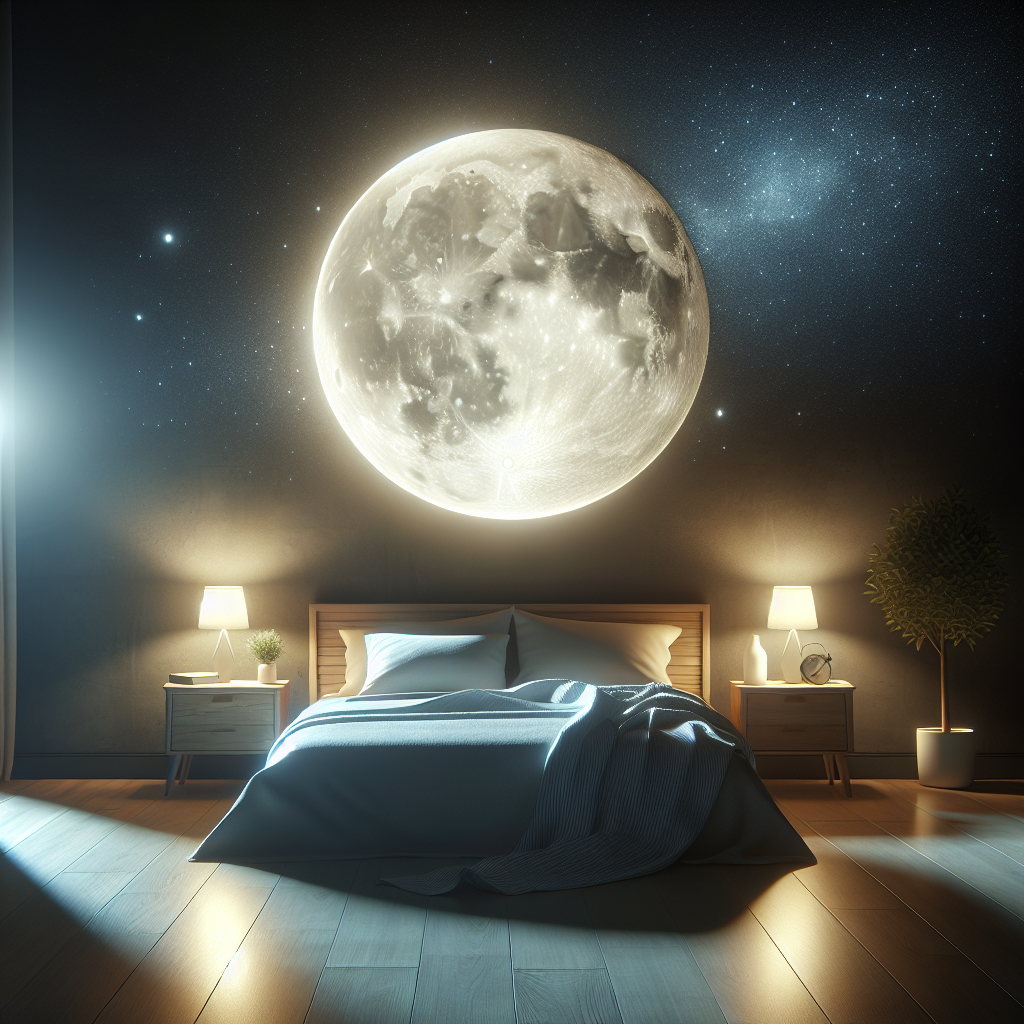Introduction to Lunar Influence on Sleep
The moon has long captivated human imagination, influencing cultures and natural phenomena in profound ways. One less explored aspect is how the moon influences sleep patterns. Recent studies suggest that lunar cycles might affect the quality and duration of sleep, shedding light on traditional beliefs and modern scientific inquiries alike.
The Science Behind Moonlight and Sleep
Several studies have examined the potential impact of lunar phases on human sleep. A notable research project conducted by the University of Basel in Switzerland found correlations between the lunar cycle and alterations in sleep structure. The study, published in the journal ‘Current Biology’, observed that during the full moon, individuals took longer to fall asleep and experienced decreased sleep quality and reduced REM sleep.
The mechanisms behind these changes are not entirely understood, but theories suggest that natural light from the moon may interfere with the production of melatonin, a hormone critical for regulating sleep cycles. Historically, before the advent of artificial lighting, moonlight was a significant source of nighttime illumination, which might have influenced sleep patterns.
Phases of the Moon and Their Impact
The lunar cycle is approximately 29.5 days long, during which the moon goes through several phases, each potentially affecting sleep differently:
- New Moon: When the moon is between the Earth and the sun, and not visible in the night sky, it tends to have minimal impact on sleep.
- First Quarter: As the moon becomes more visible, there is a slight increase in disruption, possibly due to increased light.
- Full Moon: Light reaches its peak, and sleep disturbances are more pronounced during this phase.
- Last Quarter: The waning moon leads to diminishing light, gradually lessening its impact on sleep until the new moon phase begins again.
Individual Variability in Lunar Impact
Not everyone experiences the same level of sleep disturbance during various moon phases. Genetic factors, personal sensitivity to natural light, and even individual exposure to artificial light can influence how significantly the moon influences sleep patterns. People living in urban areas with high levels of night-time light pollution may observe less impact compared to those in rural settings where the moon is a more critical light source.
Practical Tips for Managing Sleep During Different Moon Phases
For those looking to minimize lunar disruptions to their sleep, consider the following tips:
- Use Blackout Curtains: Blocking out moonlight can help maintain a dark, sleep-conducive environment.
- Maintain a Regular Sleep Schedule: Going to bed and waking up at the same time every day helps stabilize your internal clock.
- Limit Exposure to Blue Light: Avoid screens and blue light from devices before bedtime to support melatonin production.
Conclusion: Embracing the Night Sky
While the influence of the moon on sleep is an area still under investigation, embracing the natural rhythms of the night sky can enhance our understanding of sleep and overall well-being. Whether or not the moon influences sleep patterns significantly in your life, paying attention to the lunar cycle can be a reminder of the broader natural world’s impacts on our health.


